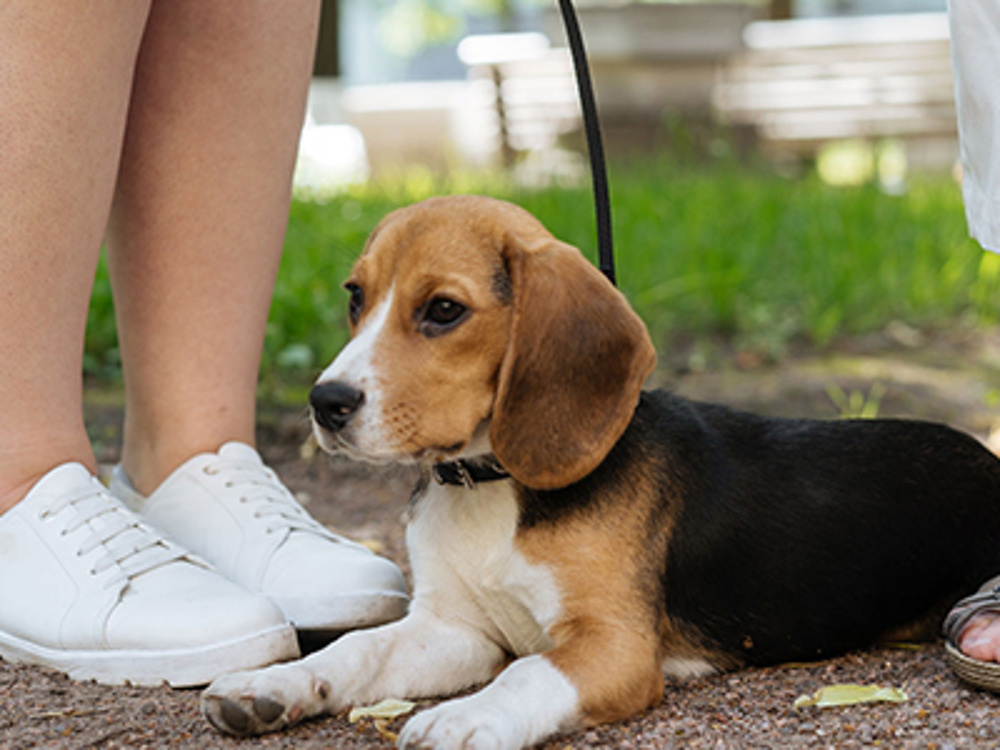
Making a difference
The Kennel Club is constantly campaigning for and advocating on the behalf of dogs and their owners. To ensure that dogs enjoy maximum access to the UK’s open spaces, we monitor issues such as Public Spaces Protection Orders (PSPOs) and Dog Control Orders (DCOs) across the UK and, as part of our external affairs activities, regularly engage with the relevant public bodies hoping to introduce such measures.
We are the only national organisation explicitly named by the UK Government as a body that local authorities should consult prior to introducing restrictions on dog walkers. During this process, we discuss problems and potential solutions to avoid the introduction of any restrictive measures and to keep public spaces as accessible as possible for dogs.
Our ‘Out of Order’ report
Our Out of Order report studied the impact of PSPOs and other restrictions on dog walkers. With examples of both good and poor practice, the report contains recommendations for both the UK Government and local authorities in order to reduce the risk of unfair and disproportionate restrictions on responsible dog walkers. See a summary of our recommendations below:
Restrictions
When proposing restrictions, we recommend that local authorities publish a list of alternative sites that dog walkers can use to exercise their dogs without restriction (recommendation 2). We also believe, prior to the imposition of any restrictions, that local authorities must fully consider enforcement strategies to ensure that further conflict is avoided and restrictions are properly enforced (recommendation 3).
We advocate that any measures taken by local authorities must be proportionate, fair, and the least restrictive possible. It may be the case that more targeted restrictions, such as Acceptable Behaviour Contracts and Community Protection Notices, are more suitable to deal with the problems identified (recommendation 4). As well as this, more limited restrictions could see seasonal or time limited measures passed, rather than outright blanket bans on dog access (recommendation 5).
It is vital that local authorities meet their legal obligations under the Equality Act 2010. The implications of any restrictive measures on assistance dog users must be fully addressed and clear guidance must be issued to local authorities on this front (recommendation 8).As well as this, clearer guidance should be provided to local authorities on the appropriateness of introducing penalties for activities which in and of themselves are not detrimental to local life. As such, we would welcome a return to a set list of prescribed offences, as was the case under the Clean Neighbourhoods and Environment Act for local authorities introducing DCOs (recommendation 9).
Consultation
Although local authorities are required by law to hold ‘appropriate consultation with community representatives’, this is not always followed in the most effective way possible. It is important that clearer guidance is published regarding who constitutes a community representative (recommendation 6). We also believe that any PSPO which restricts dog access should be subject to a public consultation which has been fully publicised on the relevant channels and is easily accessible for all members of the community.
We believe that any restrictions imposed should be proportionate and evidence based, which is why we would like to see evidence supporting the need for restrictions published alongside consultation documents (recommendation 1). Should additional sites be put forward by respondents during the consultation period, dog walkers and other stakeholders should be provided a fair opportunity to respond to the proposal through a second consultation period (recommendation 7).
Review
It is unlikely that local members of the community will be able to legally challenge an Order due to the extortionate cost and burdensome legal proceedings. We believe a lower cost alternative should be considered, such as designating the Local Government Ombudsman, as a first stage alternative to challenging the validity of an Order. The process for appealing restrictions should be made more accessible for all those affected by the Order. This is why we propose extending the six-week time limit on an appeal (recommendation 10).
Byelaws
We believe that the Government should produce clear guidance for secondary authorities on the use of byelaws for dog control and that secondary authorities should be required to consult with both neighbouring authorities and the umbrella primary authority on proposed byelaws. If a byelaw introduces new restrictions, dog walkers should be provided with the opportunity to challenge the proposal on the basis of the combined impact of the two, or more, sets of restrictions. As is the case with PSPOs, a requirement that byelaws are reviewed every three years should be introduced (recommendation 11).
Get involved
To learn more about this issue, please see our ‘Access for Owners’ hub. Here you will find advice and guidance for owners facing restrictions – including what certain measures would mean in your area – and advice for local authorities looking to impose measures.
If your local authority is considering implementing or renewing restrictions, or you are unhappy with existing restrictions, we would encourage you to contact your local council representative. It is important to raise your concerns with them and explain the effect that any restrictions may have had on you or your dog.
Find your local councillor and get in contact with them.
For more information on this issue, or to bring our attention to any upcoming PSPO consultations in your area, please get in touch via email or reach out to us on Twitter.
